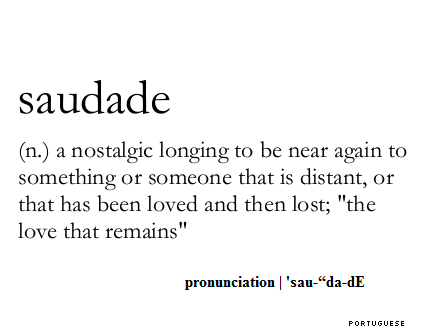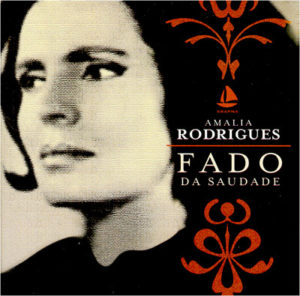Saudade: nostalgic longing and the spirit of Portugal
Saudade
Portugal, Saudade is one of those words for which there is no literal translation. However, it seems that Portuguese are born with an innate understanding of its meaning.
Saudade means a mixture of melancholic longing or yearning coupled with a sense of loneliness and incompleteness. That is a mouthful, right? Certainly, it is one of the most complex words to translate.

The meaning of Saudade
So, luckily, Aubrey Firz Gerard Bell describes Saudade in his 1912 book “In Portugal” as:
“Saudade is a vague and constant desire for something that does not and probably cannot exist, for something other then the present, a turning towards the past or towards the future; not an active discontent or poignant sadness but an indolent dreaming wistfulness.”
Furthermore, you can listen to the correct pronunciation here below:
Hence, saudade is very versatile and often used by Portuguese all of the worlds. Furthermore, Brazilians use this word just as much.

“Saudade for a brother who lives far off.
Feeling Saudade for a childhood waterfall.
Sensing Saudade for the flavor of a fruit never to be found again.
Again Saudade for the father who died, for the imaginary friend who never existed…Saudade for a city.
Saudade for ourselves, when we see that time doesn’t forgive us. All these saudades hurt.
But the saudade that hurts the most is the one for someone beloved.For their skin, their smell, their kisses.
For their presence and even their agreed upon absence.”
-Miguel Falabella-
Saudade is the presence of absence. Saudade is a mixture of joy with hurt.

Saudade and Fado
Saudade transpires in conversations, in moods and in music. Above all, Fado, Portugal most famous music style, has Saudade as its most popular theme. Finally, Fado is simply perfect to express Saudade. “Fado is a musical cultural expression and recognition of this unassailable determinism which compels the resigned yearning of saudade, a bitter-sweet, existential yearning and hopefulness towards something over which one has no control.” – Wikipedia
Certainly, Amalia Rodrigues is the most famous fado singer to date. Therefore, she gave it its letters of nobility and world-wide recognition.
Original lyrics translation
“Oh, my pain
Without your bitter mourning
I could not sing as I sing
In my embittered corner
Oh, my love
You are now what I suffer and cry?
In the end, I now adore
It is for you I sing fado!”
